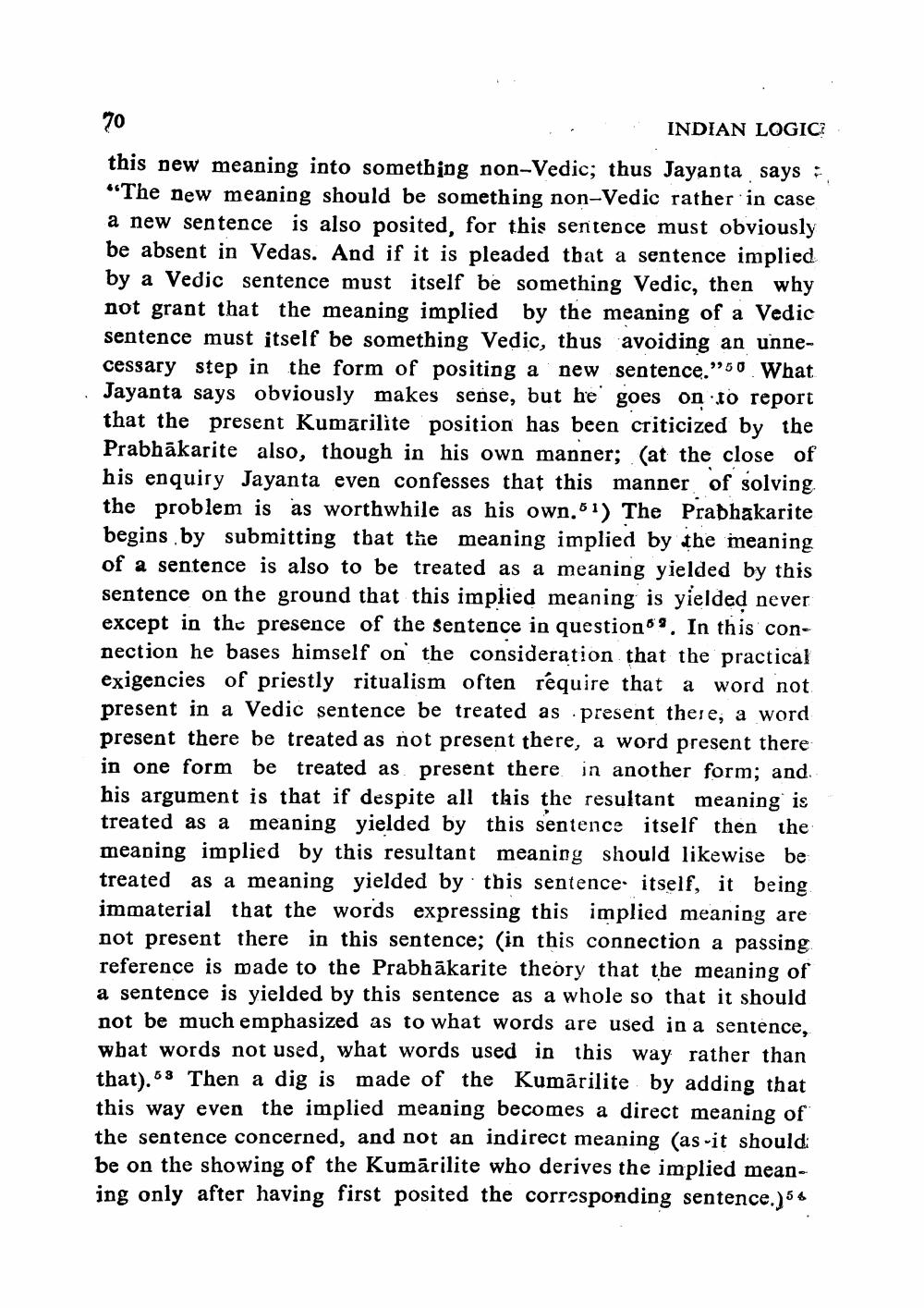________________
70
INDIAN LOGIC
this new meaning into something non-Vedic; thus Jayanta says: “The new meaning should be something non-Vedic rather in case a new sentence is also posited, for this sentence must obviously be absent in Vedas. And if it is pleaded that a sentence implied by a Vedic sentence must itself be something Vedic, then why not grant that the meaning implied by the meaning of a Vedic sentence must itself be something Vedic, thus avoiding an unnecessary step in the form of positing a new sentence.”50 What Jayanta says obviously makes sense, but he goes on to report that the present Kumarilite position has been criticized by the Prabhākarite also, though in his own manner; (at the close of his enquiry Jayanta even confesses that this manner of solving the problem is as worthwhile as his own.51) The Prabhakarite begins by submitting that the meaning implied by the meaning of a sentence is also to be treated as a meaning yielded by this sentence on the ground that this implied meaning is yielded never except in the presence of the sentence in questions. In this connection he bases himself on the consideration that the practical exigencies of priestly ritualism often require that a word not present in a Vedic sentence be treated as present there, a word present there be treated as not present there, a word present there in one form be treated as present there in another form; and his argument is that if despite all this the resultant meaning is treated as a meaning yielded by this sentence itself then the meaning implied by this resultant meaning should likewise be treated as a meaning yielded by this sentence itself, it being immaterial that the words expressing this implied meaning are not present there in this sentence; (in this connection a passing reference is made to the Prabhākarite theory that the meaning of a sentence is yielded by this sentence as a whole so that it should not be much emphasized as to what words are used in a sentence, what words not used, what words used in this way rather than that).63 Then a dig is made of the Kumārilite by adding that this way even the implied meaning becomes a direct meaning of the sentence concerned, and not an indirect meaning (as-it should be on the showing of the Kumārilite who derives the implied meaning only after having first posited the corresponding sentence.)56




